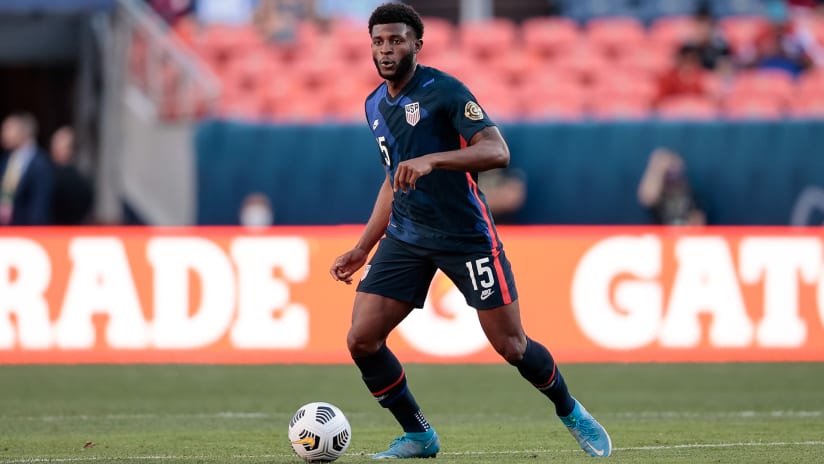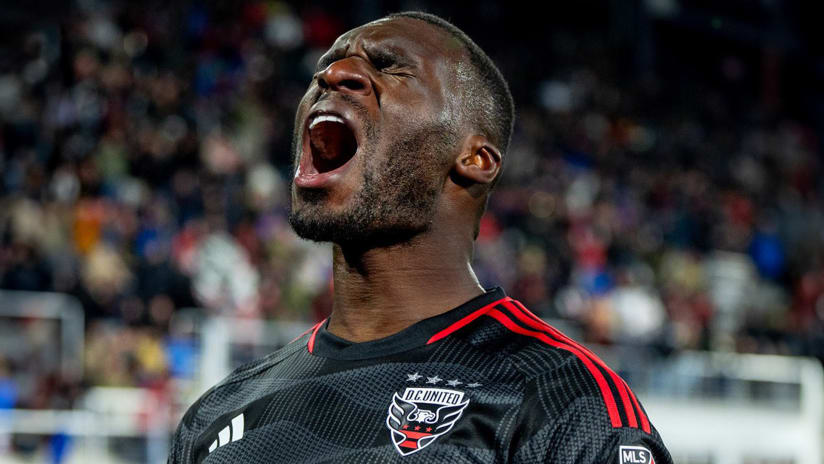US men’s national team center back Mark McKenzie is the first to raise his hand and acknowledge that his performance in the Concacaf Nations League final wasn’t as strong as he hoped for.
His costly turnover allowed Jesus Manuel Corona to score in the 2nd minute, starting what could have been a long evening at Denver’s Empower Field at Mile High. Of course, the USMNT eventually roared back for an iconic 3-2 win in the inaugural regional competition, giving Gregg Berhalter’s young team a benchmark moment.
But the racial abuse McKenzie suffered as a result crossed a serious line, and the Philadelphia Union homegrown product took a stance after the fact. Reflecting upon that decision during an interview with Extratime, the 22-year-old affirmed why he refused to back down.
“I’m not perfect, it wasn’t my greatest match ever,” McKenzie said. “But at the same time, this is football and that happens. So I’ll learn from it and I can take critique, I can take the performance critique. I can take that as a player.
“But when you start crossing a line of attacking my family personally, you start racially abusing myself and my teammates got it as well – when you cross that line, now you’re going from critiquing a performance … to degrading somebody, to make them inferior in a way, verbally. People say sticks and stones don’t break my bones – this, that and the other. But words sometimes, they hit you and I don’t think it hit me in a way where I’m upset or sad, but I was more annoyed at the fact that we’re still dealing with the situation and I think it needed addressing. It did need addressing and still needs addressing.”
McKenzie, who’s now with Belgian Pro League side Genk after a wintertime transfer, said he wasn’t seeking the spotlight. But at the same time, he refused to idly stand by and not let his perspective be heard.
“For me, it wasn’t about attention, it wasn’t about taking away attention from the match or what happened,” McKenzie said. “It was more about bringing attention to the fact that this is prevalent. They attacked me, but at the same time we can’t let our guard down at any point because this is still going on.
“My family, my teammates were all supportive of me saying something. I battled with it because my team just came off a successful first inaugural trophy and I did not want to take away from that. But there are things that are bigger than sports, there are things that are bigger than just me, there are things that are bigger than the team. And I felt that this needed to be said.”
McKennie’s call to action occurred just before Juneteenth, a federal holiday that commemorates the end of slavery in the United States. He hopes that as Juneteenth becomes more prevalent and recognized throughout society, it provides an educational window to address structural racism and difficult truths.
“We talk about Juneteenth and how it’s kind of just getting recognized over the last year now, that you really start to hear more about Juneteenth,” McKenzie said. “But on that front, look at it and what’s being done in the classroom. I didn’t know about Juneteenth, coming up in social studies and history classes. I didn’t know about it until my cousins and whatnot started introducing me to it.
“So when you talk about learning about it, if you’re not learning about it on a daily basis in the classroom – you talk about American history, this is American history. This is a huge part of American history that we have just skipped over.”
For more from McKenzie’s powerful interview, check out the Extratime clip above or the entire segment here.














